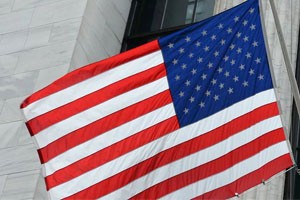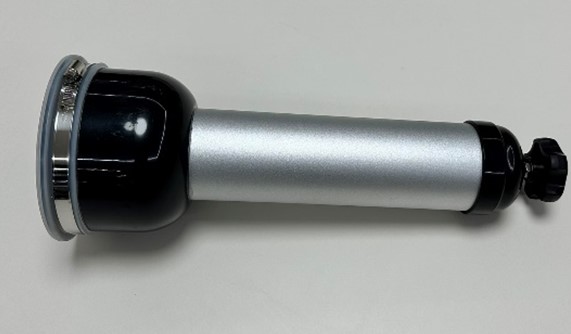What does Russia's suspension of the START Treaty mean ? Russia is suspending its participation in the START Treaty. The reason is the involvement of the United States

How the Russian leader explained the suspension of participation in the treaty
RUSSIA is suspending its participation in the Strategic Arms Reduction Treaty (START), President Vladimir Putin said in a February 21 address to the Federal Assembly, stressing that Moscow "is not withdrawing from the treaty, no, it is suspending its participation."
Arguing for this decision, he referred to the NATO statement on START, which the alliance released on February 3, 2023. In it, he called on Russia to fulfill its obligations under the treaty - in particular, to facilitate inspections and return to the work of the Bilateral Consultative Commission (BCC).
Putin said that the situation around the treaty is inextricably linked with the situation in Ukraine. “We know that the West is directly involved in the attempts of the Kyiv regime to strike at the bases of our strategic aviation. The drones used for this were equipped and modernized with the assistance of NATO specialists. And now they also want to inspect our defense facilities,” the Russian president said. He also said that a week ago he signed a decree on putting new ground-based strategic complexes on combat duty.
From missile defense to strategic offensive arms: what happened to the main arms treaties Politics
According to Putin, with his statement, “NATO actually made an application to become a party” to the New START Treaty. In order to resume work under the treaty, the president said, it is important for Russia to understand "what such countries of the North Atlantic alliance as France and Great Britain still claim" and how Moscow will "take into account their strategic arsenals, that is, the alliance's combined strike potential."
The START Treaty was signed in Prague in 2010 by Russian and US Presidents Dmitry Medvedev and Barack Obama. It entered into force in 2011. The document is valid for ten years, after which it could be extended for another five years, which Moscow and Washington did in February 2021. Thus, START expires in February 2026, after which it was to be replaced by a new document. To date, the START Treaty is the only arms control agreement left between Russia and the United States.
According to the treaty, the parties reduce the number of intercontinental ballistic missiles (ICBMs), submarine-launched ballistic missiles (SLBMs), their launchers and warheads, as well as heavy bombers and their nuclear weapons, so that by 2018 their number does not exceed:
a) 700 for deployed ICBMs, SLBMs and heavy bombers;
b) 1550 for charges on deployed ICBMs, SLBMs and nuclear charges counted for deployed heavy bombers;
c) 800 for deployed and non-deployed ICBM launchers, SLBM launchers, heavy bombers.
According to START, a Bilateral Consultative Commission is being established, mutual inspections are taking place at ICBM bases, submarines and air bases.
Read PIONERPRODUKT .by Cleaners, adjusters and spies: what cells regulate the brain How an accountant tricks you around his finger - 13 most popular schemes China's struggle of mindsand the US: which companies are vying for leadership in the field of AI Six unpleasant post-COVID symptoms and how to deal with themIn his speech, Putin pointed out that certain US nuclear weapons were out of warranty, and now, he said, "certain figures in Washington" are thinking about testing their own nuclear weapons - in particular, new types of them. The president did not specify which figures he was talking about, but he stressed that the Ministry of Defense and Rosatom should also prepare for such tests. “Of course, we will not be the first to do this, but if the United States conducts tests, then we will conduct them,” he concluded.
On the evening of February 21, the Russian Foreign Ministry published an explanation of the Russian position. It follows from it that Moscow will continue to comply with quantitative restrictions on strategic offensive arms. The department stressed that the decision to suspend "may be reversible" - for this, Washington must "show political will, make good faith efforts for a general de-escalation." Until then, any moves by Moscow towards the United States are "absolutely out of the question," the report says, which, along with claims about the treaty, includes accusations of unleashing a "total hybrid war" against Russia.
What does START suspension mean?
The contract does not contain such a thing as suspension of action - it only stipulates the procedure for exit. Article XIV, paragraph 3, states that one of the parties may withdraw from it if it decides that "the exceptional circumstances connected with the content of this Treaty have endangered its supreme interests." She must notify the other party of her decision, three months after that, the contract will cease to be valid.
Presidential spokesman Dmitry Peskov said that the suspension of participation requires consideration by the parliament of the relevant document. Putin will introduce such a document "promptly," Peskov promised.
Putin will “promptly” introduce a document on the suspension of participation in START Politics
The announcement of suspension, not withdrawal, indicates that there is still a chance to renew the treaty, experts say. “There is still an opportunity to hold urgent consultations, to clarify claims against each other,” said Alexei Arbatov, HEAD of the Center for International Security at IMEMO RAS, in an interview with RBC. - If they are mainly of a technical nature, then in principle they can be resolved very quickly. But I don't think that's what the question was asked for. And in order to show the West that its policy on the Ukrainian conflict does not suit Russia at all, and Russia will use all available means to express this displeasure, in particular, in the area where the United States is really very interested in interacting with Russia.” “Very interested” does not mean “more interested than Russia”, the expert notes,
The specific conditions for Russia's return to the treaty are not yet very clear - Putin rather gave reasons why the country is suspending participation in it, says Andrei Baklitsky, senior researcher at the UN Institute for Disarmament Research: it was about the nuclear arsenals of Britain and France, and about the attack on Ukrainian forces against Russian air bases, and about new systems that the United States wants to inspect, which, in the conditions of hostilities, according to Moscow, is unacceptable. According to the expert, the suspension implies the termination of not only inspections and the work of the DCC, but also the exchange of information and notifications; but, apparently, Russia will continue to adhere to the START ceilings prescribed in the document - the document will remain, simply without the means of verification.
“This is an absolutely political decision, so exactly the same political decision can be made to return to the implementation of the treaty. Another thing is that, apparently, this requires some kind of cardinal changes in relations between Russia and the United States. And it is not obvious that these changes will take place,” Baklitsky told RBC. “It is becoming clear that arms control is no longer separated in any way from the overall context of relations between countries.”
How did the inspections go?
Russia and the United States suspended mutual inspections in 2020 - then it was due to the covid-19 pandemic. They were never renewed. The next meeting of the Bilateral Consultative Commission was scheduled to be held in early December 2022 in Cairo to discuss the issue of inspections. The American side insisted on it, Russia had another priority - removing from the treaty part of the US strategic carriers, which Washington designated as converted for non-nuclear missions. The meeting did not take place - the day before the start of the session in Moscow, they announced that "the event was postponed to a later date." In a commentary on the cancellation of the meeting, Foreign Ministry spokeswoman Maria Zakharova spoke of linking the consultations with the course of the conflict in Ukraine. According to her, “you need to have a very peculiar logic to tell Russia about restraint, transparency and predictability in military matters,
The White House expressed regret that the consultations did not take place, and stated that START had "nothing to do" with the situation in Ukraine. But in late January, the US State Department, for the first time in history, accused Moscow of violating START by refusing to allow inspections and rejecting requests for a meeting to discuss compliance issues.
At the same time, both sides emphasized the importance of maintaining the treaty. On February 1, Peskov called the treaty "very important", accusing the United States of "virtually destroying" the contractual and legal framework in the field of arms control, he said that "at least some hints" of a dialogue on START were needed. Washington dispensed with allusions and stated bluntly: START “remains in the national security interests of the United States” and they “remain ready to work constructively with Russia to fully implement the treaty.”
Speaking about the difficulties with the admission of Russian specialists to American facilities, Cara Abercrombie, coordinator for defense policy and arms control at the White House National Security Council, February 1, assured that the United States is doing "everything possible to remove any potential obstacles to the travel of Russians to the United States. Nine days later, Undersecretary of State for Arms Control and International Security Bonnie Jenkins reaffirmed that "the United States is extremely interested in resuming contacts with Russia" on this issue and will "look for ways" to do so.
The United States called on Russia to allow inspections under START-3 Politics
What about the UK and France
Putin's statement about the actual involvement of Great Britain and France in the treaty is reminiscent of the situation that developed during the consultations on the extension of START in 2019-2020. Then Moscow was dealing with the Donald Trump administration, which demanded that CHINA also participate in the agreement . Beijing rejected this possibility, and Moscow was not going to persuade it to do so.
Russian representatives said that it would be nice to include London and Paris in the document, but did not strongly insist. Moreover, there were a number of obstacles for this - from the technical complexity of involving new countries in a bilateral document to the fact that the number of strategic offensive arms in Britain, China and France is already much lower than that of Russia and the United States. Therefore, Moscow said that it was possible to take into account the arsenals of the other three nuclear powers, but only in a new document that could replace START.
According to the Bulletin of the Atomic Scientists, in 2021 the total number of nuclear charges in the world was 9.2 thousand units, of which 4.4 thousand were in Russia, 3.7 thousand in the United States, 350 in China , 290 - to France, 180 - to the UK.
According to Academician Arbatov, the current situation mirrors the US demands to connect Beijing. “The only difference is that France and Great Britain are military allies of the United States, and China is not a military ally of Russia,” the expert noted. The Russian demand for Britain and France to join raises the question of China joining the treaty; if this is an indispensable condition, then it will be possible to say “goodbye” to the agreement, Arbatov is sure.
Baklitsky also draws attention to the fact that the obstacles that were during the negotiations with Trump have not gone anywhere. “The nuclear arsenals of France and the UK are strikingly different from the arsenals of Russia and the United States. They are not spelled out in the contract, and it is impossible to enter them there without actually rewriting the document. The updated document will also require ratification in Russia and the United States,” the expert notes.
How did the West react to Moscow's decision?
NATO Secretary General Jens Stoltenberg immediately after Vladimir Putin's statement accused Moscow of violating key disarmament treaties in recent years and said that with the current decision, "the entire architecture of the arms control system has been destroyed." He “strongly recommended” Russia to return to START compliance.
The United States was more restrained in its reaction. “You know, when the [President Joe Biden] administration got down to business, we extended New START because it was clearly in the security interests of our country and in fact Russia’s security interests,” Secretary of State Anthony Blinken said in response to reporters’ questions. Although he called Moscow's decision irresponsible and regrettable, he nevertheless noted that Washington is ready to discuss arms limitation with Russia "at any time, regardless of what happens in the world or in our relations."
Read together with it:
- Zelensky imposed sanctions against de Gaulle's grandson, Mizulina, and the Hutsuls.Dozens of individuals and legal entities, including organizations operating in Crimea and a number of Moldovan citizens, have been hit by Ukraine's new sanctions , which Zelensky said were "destabilizing" the country. Ukrainian President Volodymyr Zelenskyy signed decrees on three new sanctions packages against RUSSIA. The documents were published on the HEAD of state's website. Among those affect...
- Борьба с контрабандой, переориентация грузов. Как работают белорусские таможенникиНовости темы В Беларуси 20 сентября отмечают профессиональный праздник таможенники. Оформление грузов, борьба с контрабандой и незаконными схемами поставок товаров - часть их каждодневной работы. Несмотря на непростые условия, санкции и ограничения, таможня продолжает защищать экономические интересы страны. Внедряются новые технологии, улучшается инфраструктура. Вектор на востокКак рассказали в ГТ...
- The European Commission has proposed lowering the price ceiling for Russian oil to $47.6 per barrel.00:00 Advertisement 00:00 00:00 / 00:00 720p 576p 480p 360p 224p You can skip the advertisement in More Video The European Commission (EC), as part of the new 19th package of sanctions against RUSSIA, proposed lowering the price ceiling for Russianoil prices to $47.6 per barrel, said EC President Ursula von der Leyen. The EU is considering sanctions against another 118 vessels in Russia's "shadow ...
- Еврокомиссия предложила ограничить доступ России к технологиям ИИВ рамках 19-го пакета санкций Еврокомиссия хочет ограничить доступ России к технологиям ИИ и геоданным, заявила Каллас. Он также включает меры против российских банков и финансовых организаций. Москва считает санкции незаконными Еврокомиссия (ЕК) в рамках 19-го пакета санкций намерена ограничить доступ России к технологиям искусственного интеллекта и геоданным, заявила верховный представитель ЕС п...




























































